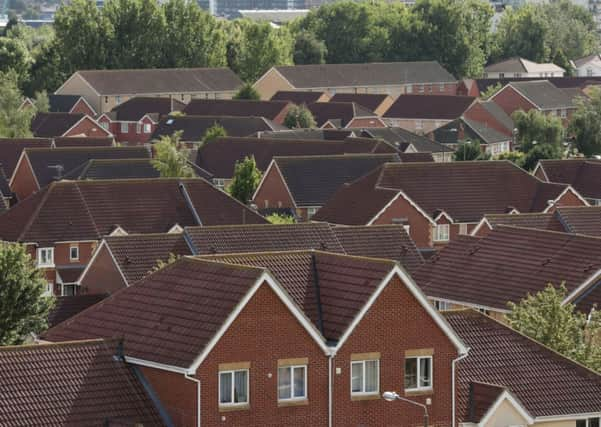More than 45,000 of Yorkshire’s elderly living in ‘non-decent’ housing


The current housing stock is not fit for elderly people to age safely in their homes, and those living in low-income households or in rural areas most affected, charity Electrical Safety First has warned in a new report.
It is urging the Government to take action after researchers found that a million over 75s across the country live in ‘non-decent’ homes, a standard set by the Government.
Advertisement
Hide AdAdvertisement
Hide AdThe report reveals “serious concerns” about the electrical safety of older people, finding that nearly two thirds of households with a couple over 60 do not meet basic electrical safety standards, which include having such life-saving devices such as a modern fusebox, residual current device, circuit breakers and PVC wiring.
And a lack of new builds combined with an ageing population means this situation will worsen unless urgent action is taken, the report said.
The charity said older people are disproportionately at risk because they are living in their properties for longer, leaving longer periods between comprehensive checks and the electrical installations and appliances also tend to be older. More than 40 per cent of people who have lived in their property for 30 or more years live in non-decent accommodation.
Phil Buckle, director general of Electrical Safety First, said: “The Government has a duty to ensure that no-one is living in unsafe housing, and yet a million over 75s live in housing deemed non-decent by their own standards. A shortage of new builds means that housing stock will continue to age, electrics will continue to deteriorate and vulnerable people will continue to be put at risk.
Advertisement
Hide AdAdvertisement
Hide Ad“Most people want to stay in their home as long as possible, but for this to happen we need central and local governments to act and ensure elderly people can maintain their independence by living in safe and decent houses.”
The campaign has been supported by 70-year-old Howard Barry, of Leeds, whose kitchen was set ablaze when the electric in his old boiler caught fire. He was woken by an “odd smell” to find his bungalow filled with smoke.
He said: “I followed the smoke to the kitchen and could feel the heat searing off the closed door. I quickly grabbed my wife and dog and fled the house. Although we luckily escaped unharmed our kitchen was completely destroyed, I dread to think what could have happened if I hadn’t woken up.”
The report also noted “barriers” to older people being safe, including a fear of letting strangers in their homes, the cost associated with hiring tradesmen and social isolation - hazards the charity say may go unnoticed. Dementia can also increase safety risks as memory problems and confusion can mean electrical appliances are used unsafely.
Advertisement
Hide AdAdvertisement
Hide AdBaroness Greengross, who wrote the report, said it was vital that “every effort” was made to make homes safe as the ageing population saw more and more older people remaining living independently.
She said: “Too many older people live in poor housing conditions potentially putting them at risk of electrical harm. At the same time, growing numbers of people with dementia need to be confident that their homes, which should be as hazard-free as possible.
“There now needs to be a concerted effort from central government and local authorities to rectify this”.
North Yorkshire councillor and chair of Future Years, the Yorkshire and Humber Forum on Ageing, Shelagh Marshall, said the report was “worrying.”
Advertisement
Hide AdAdvertisement
Hide AdShe urged older people to contact their local Fire and Rescue Service to get their homes safety tested.
Coun Marshall said: “People often don’t have the money to upgrade their homes, and are living in substantial houses, but there is a lot of help out there to keep people safe, they just don’t know what’s available.”
Housing Minister Brandon Lewis said the Government has provided £2.3 billion to bring sub-standard council homes up to scratch, and reduced the number in England from 291,600 in 2010 to 145,900 in 2014.
The Disabled Facilities Grant, he said, has provided £1 billion to enable disabled people to remain independently at home, and £6.5 billion has been spent on housing related support and advice to help people who want to stay in their owns.
He added: “We want to help people to live independently and safely in their home.”